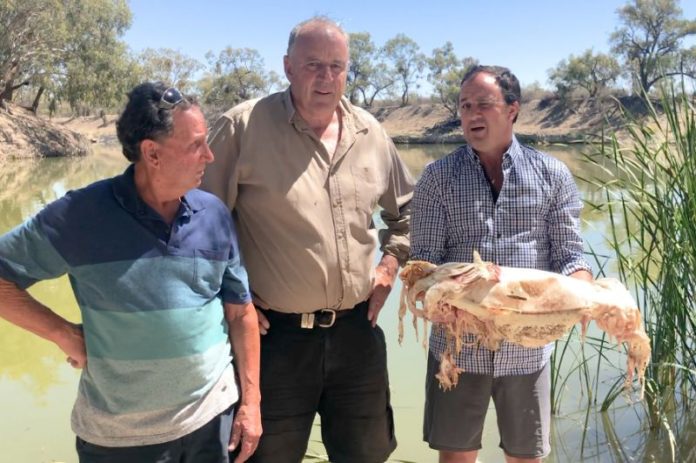SYDNEY, Feb 18, 2019 (BSS/AFP) – The viability of a key river that feeds into
Australia’s biggest water system is under threat if poor conditions that
killed millions of fish are not improved within six months, scientists warned
Monday.
The management of the Murray-Darling River system, which stretches
thousands of kilometres across several states and supplies Australia’s food
bowl, has been under close scrutiny following three mass fish deaths in
December and January.
Authorities said millions of fish died in the Darling River events, blamed
on low water flow and oxygen levels in the river as well as possibly toxic
algae.
Leading scientists who studied the three bouts of kills said that while a
severe drought plaguing inland eastern Australia contributed to the deaths,
there were also “serious deficiencies in governance and management” of the
river network.
“Our review of the fish kills found there isn’t enough water in the Darling
system to avoid catastrophic outcomes,” said Craig Moritz, chair of the
independent expert panel commissioned by the opposition Labor Party to
investigate the deaths.
He said an analysis of rainfall and river flow data over recent decades
points to “excess water extraction upstream” in the agricultural regions of
Queensland and New South Wales (NSW) states.
If urgent steps are not taken within six months to increase the flow of
water, the expert report said, the “viability of the Darling” as well as the
communities that depend on it for their livelihoods would be under threat.
Authorities in 2014 launched a vast Murray-Darling Basin Plan to manage
water sharing and usage along the length of the system, which runs through
five states and territories.
Last month a Royal Commission launched by South Australia state accused
officials of “maladministration”, “negligence” and “unlawful” actions in
implementing the plan.
Environmental activists and many residents living along the lower reaches
of the Murray-Darling system have put much of the blame on abusive water
extraction for irrigation by agribusinesses, including major cotton farms in
Queensland and NSW.
But officials of Australia’s conservative federal government have focused
on the impacts of prolonged drought and an unprecedented heat wave during
this southern summer as the primary causes of low water flow in the Darling
River.
Federal Environment Minister Melissa Price said Monday that “significant
rainfall” was needed to alleviate the poor water quality and that release of
more water into the system from upstream dams would not improve the
conditions.



